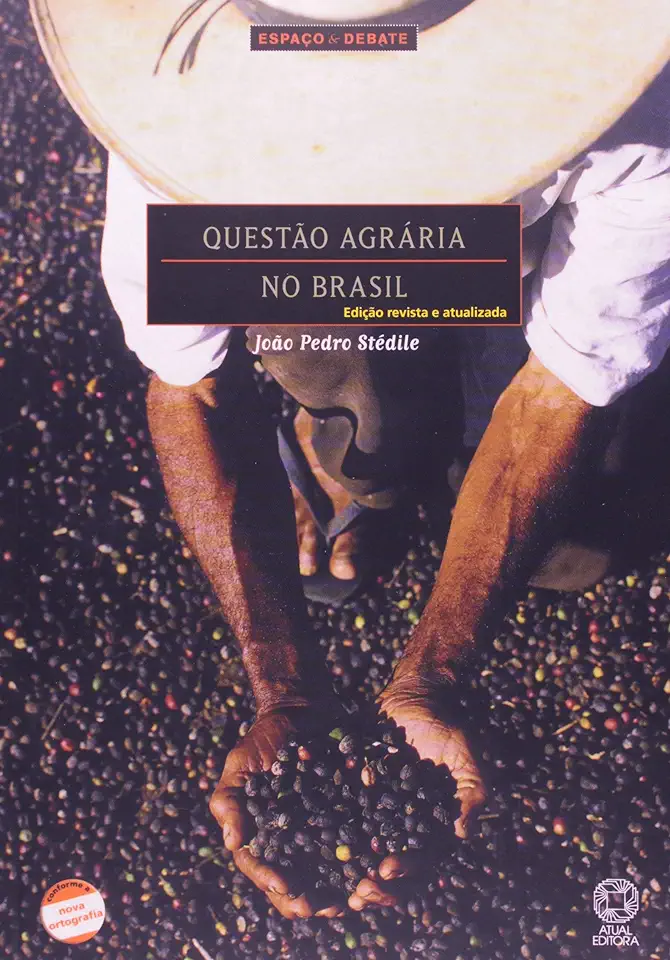
Agrarian Question in Brazil - João Pedro Stédile
Agrarian Question in Brazil: A Must-Read for Understanding Brazil's Rural Realities
In his groundbreaking book, "Agrarian Question in Brazil," João Pedro Stédile offers a comprehensive analysis of the complex social, economic, and political dynamics that have shaped Brazil's rural landscape. Stédile, a prominent leader of Brazil's Landless Workers' Movement (MST), provides a unique perspective on the struggles faced by rural communities and the urgent need for agrarian reform.
A Historical Perspective on Brazil's Agrarian Structure
Stédile begins by tracing the historical roots of Brazil's agrarian structure, highlighting the legacy of colonialism, slavery, and large-scale landownership that has perpetuated inequality and social injustice in the countryside. He argues that Brazil's current agrarian structure is characterized by a profound concentration of land in the hands of a few wealthy landowners, while millions of rural workers are left landless and impoverished.
The Plight of Rural Workers and Landless Peasants
Stédile vividly portrays the harsh realities faced by rural workers and landless peasants in Brazil. He describes the deplorable living conditions, lack of access to basic services, and the exploitation and violence that many rural communities endure. Stédile emphasizes the urgent need for agrarian reform to address these injustices and promote social justice in the countryside.
The Landless Workers' Movement: A Struggle for Social Transformation
Stédile provides a detailed account of the Landless Workers' Movement (MST), one of the most influential social movements in Brazil. He explains the MST's strategies, tactics, and achievements in mobilizing rural workers and fighting for land rights. Stédile argues that the MST represents a beacon of hope for rural communities and a powerful force for social transformation in Brazil.
Agrarian Reform: A Path to Sustainable Development
Stédile concludes by presenting a compelling case for agrarian reform as a necessary step towards achieving sustainable development in Brazil. He argues that agrarian reform is not only about redistributing land but also about promoting social justice, reducing poverty, and fostering economic growth. Stédile's vision for agrarian reform is rooted in the principles of social justice, environmental sustainability, and participatory democracy.
Why You Should Read "Agrarian Question in Brazil"
"Agrarian Question in Brazil" is a must-read for anyone interested in understanding the complex social, economic, and political dynamics that shape Brazil's rural realities. Stédile's profound analysis and passionate advocacy for agrarian reform offer a unique perspective on the challenges facing Brazil's rural communities and the urgent need for social transformation. This book is a powerful call to action for anyone committed to social justice and sustainable development in Brazil and beyond.
Key Takeaways:
- Brazil's agrarian structure is characterized by a profound concentration of land in the hands of a few wealthy landowners, while millions of rural workers are left landless and impoverished.
- Rural workers and landless peasants in Brazil face harsh realities, including deplorable living conditions, lack of access to basic services, and exploitation and violence.
- The Landless Workers' Movement (MST) is a powerful social movement that mobilizes rural workers and fights for land rights, representing a beacon of hope for rural communities and a force for social transformation.
- Agrarian reform is a necessary step towards achieving sustainable development in Brazil, promoting social justice, reducing poverty, and fostering economic growth.
- "Agrarian Question in Brazil" offers a comprehensive analysis of Brazil's rural realities and a compelling case for agrarian reform, making it a must-read for anyone interested in social justice and sustainable development.
Enjoyed the summary? Discover all the details and take your reading to the next level — [click here to view the book on Amazon!]